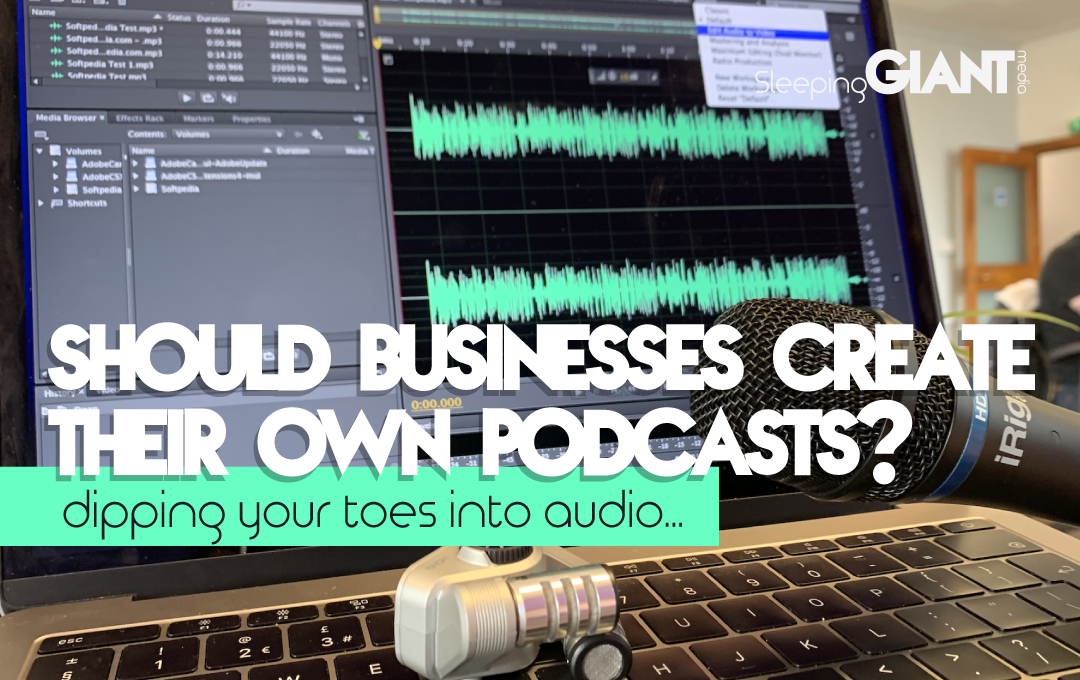
“I’m not sure, ask Google.”
“I don’t know, just Google it.”
“I’ll prove it. Go on Google.”
All three of these are phrases you’re probably used to hearing fairly often. Anything we want to know is available with just a few clicks or a tap of a phone, allowing us all to do what’s really important – settle arguments over a drink on a Friday night, and find out what other film that actor was in that you just can’t remember.
It can be difficult to remember a time before information was so easily accessible, but as we all know, technology is always changing. The move to mobile made searches quicker and faster, but the latest trend is set to make it even more so – voice search.
Studies suggest that 50% of all searches will be done by voice by 2020. When you think about it though, it really isn’t that surprising. Why spend the time typing out your query on your phone screen when you can just say it aloud? Better yet, who even needs a screen? With the rise of voice assistants such as Alexa and Google Home, people are now able to conduct voice searches easier than ever before.
All of this is great news for the everyday consumer, and it can be great news for businesses too – if you’re prepared for it. Make sure your business is ready to face the voice search revolution head-on by following our top tips.
Featured Snippets
You may notice that some of your searches on Google now include a box above all the organic results on the page. This is known as a featured snippet and is something your website should aim for to ensure maximum exposure when people are searching.
However, featured snippets are extremely important when it comes to voice searches – because they’re what devices such as Google Assistant and Alexa read out when answering a voice search query.
To stand a chance of being included in a featured snippet, all the standard SEO practices apply. Engaging content, with the right keywords, optimised metadata, and a healthy dose of internal and external links, will all help increase your chances of being featured.
Question and answer format content
Content is king, but to rule the realm of voice search you’ve got to follow content best practices – with the most important being the question and answer format.
Surprisingly, only 8% of searches on Google are actual questions, with most searches being no more than three words long. However, when it comes to voice searches, queries are far more often posed as questions, with the average voice search being closer to five to seven words too.
This means that if you can answer the questions people are asking, your content has a much greater chance of ranking higher in results – and grabbing that all-important featured snippet spot. Want to know what questions people are asking? Tools such as AnswerThePublic and the SEMrush keyword magic tool are both great ways to find out the types of questions people are asking within your relevant industry or field.
Page Speed
While home voice search devices like Alexa are growing in popularity, the vast majority of voice searches are still done on mobile, meaning how fast your website loads is still vital.
Ranking high in SERPS means nothing if the people clicking on your site after conducting their voice search bounce before your page loads completely. Ensuring your pictures aren’t too large, reducing redirects, and optimising your site’s code are all great ways to ensure your pages load quickly.
Unsure if your page is fast enough? Use tools such as Google Pagespeed Insights for an in-depth look into how your pages load.
There’s more to SEO than just voice search, though. To find out more about how SEO can help your business, check out our other blogs, or get in contact with us today to speak to one of our SEO experts.
Want results like these?
So, you’ve seen how we do it — and you know what we’re capable of. If your brand or business could benefit from results like these, get in touch with us today to unleash your potential.
Follow Us
Newsletter
Stay up to date with the latest news and stories straight from Giant HQ.
Contact Us
Top Floor, The Civic Centre, Castle Hill Avenue, Folkestone CT20 2QY.
Copyright © 2019 Sleeping Giant Media. All Rights Reserved.



0 Comments